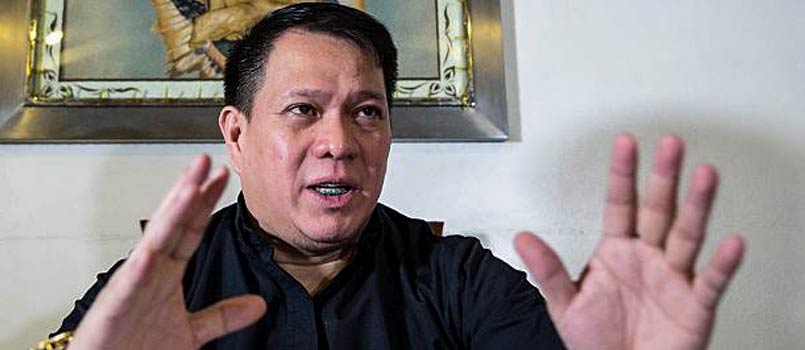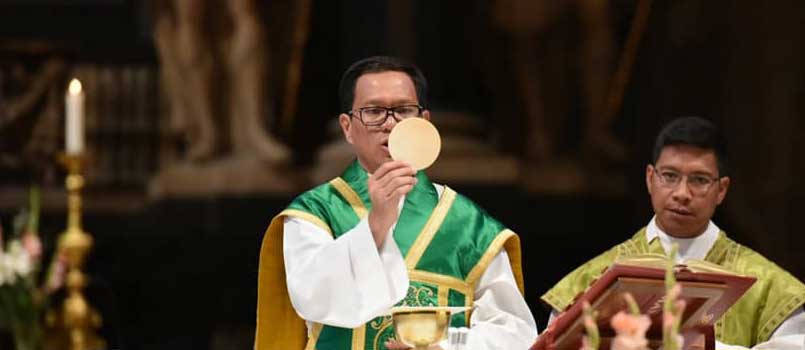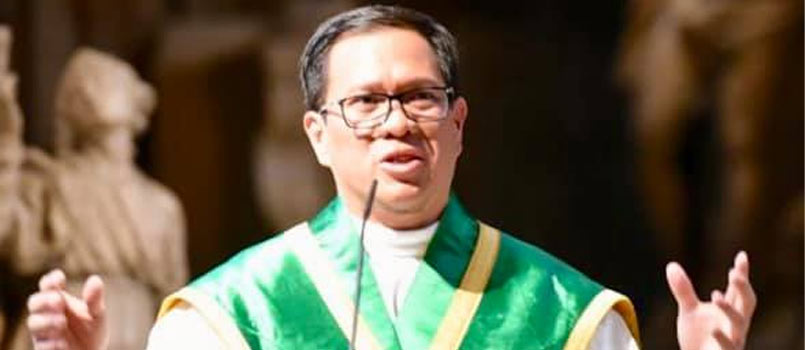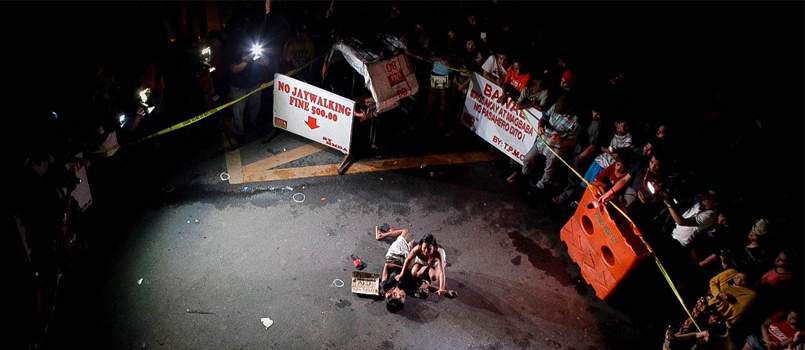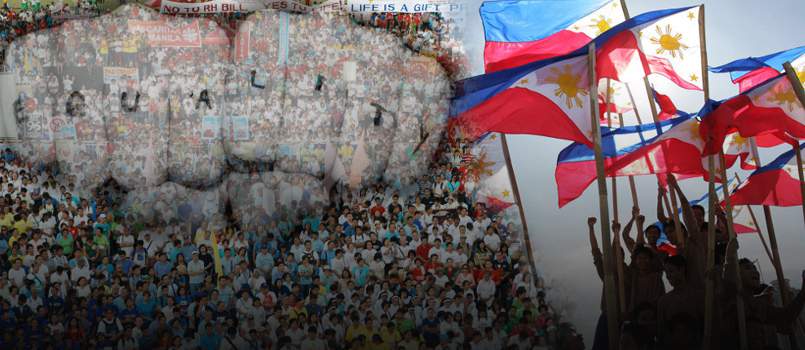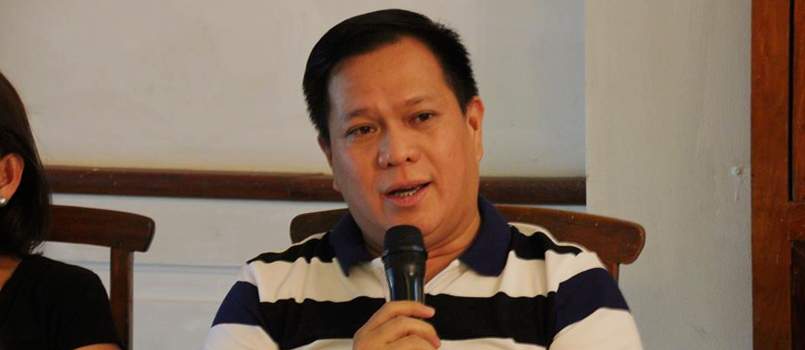
How a hurting ego killed a franchise
952 total views
How a hurting ego killed a franchise
By: Jerome R. Secillano, MPA
I am hardly surprised at the non-renewal of the franchise of ABS-CBN for the simple reason that President Duterte repeatedly promised in the past not to grant it.
I have compelling reasons to believe that members of the House of Representatives did not act in good faith in denying the network’s bid for continued operation.
The Department of Justice (DOJ), Bureau of Internal Revenue (BIR), Bureau of Immigration (BI), Securities and Exchange Commission (SEC) and the Kapisanan ng mga Brodkaster ng Pilipinas (KBP) belied the allegations hurled against the network but the House panel practically ruled them out and decided instead to focus on the network’s perceived biases and the Lopez family as an oligarch that is bad for the country.
ABS-CBN is no saint. Officials of the network admitted the company’s flaws, apologized and then promised rectification. While the gesture may not be enough to soothe a hurting ego, the arbitrariness for which the law was applied to them was too much and gravely appalling.
I heard rants, imbecile remarks, irrelevant questions, grandstanding comments and sarcastic guffaws, but the thirteen (13) hearings failed to give me the crucial information related to the guidelines for franchise renewal.
Members of the House Committee on Legislative Franchises decided the fate of the embattled network based on the nationality of the network’s chairman Eugenio Lopez III, tax avoidance, non-regularization of employees as well as supposed foreign ownership through the selling of Philippine Depository Receipts (PDRs) to foreign firms.
While tax avoidance is not illegal(as opposed to tax evasion), it was hypocritical for members of Congress to appeal to the immoral nature of the practice. Many of the bills deliberated in Congress hardly dwell on their moral implications even if some of them are obviously moral in nature.
Divorce Bill, same-sex union, death penalty, and the reproductive health law are just some of the measures that morality was sidetracked as guiding principle in their formulation. I know where I speak of because I was there in the many deliberations concerning these measures. Legislators would merely utter ‘’noted’’ once moral issues would be raised.
In a Court of Appeals (CA) ruling on July 26, 2018 with regards to Rapplers’ issuance of PDR to a foreign firm called Omidyar, the court noted that it is unconstitutional but said Rappler ought to be given reasonable time to correct the deal, “In cases where the articles of incorporation of any amendment thereto is found by the SEC to be non-compliant with the requirements of the Corporation Code, under Section 17 of the Corporation Code, the SEC is mandated to give incorporators a reasonable time within which to correct or modify the objectionable portions of their articles of incorporation or amended thereof.”
The CA further opined that the SEC even allowed other entities such as GMA, Globe and ABS-CBN to issue PDRs.
Instead of allowing the facts of the case and the law to weigh heavily on the matter, the House panel members forced their whimsical and twisted opinion to not give ABS-CBN a chance to rectify itself.
The House panel would also like the public to believe that they are pro-labor and sided with disgruntled employees who were either terminated or not regularized by the network. But by closing ABS-CBN and the fate of its eleven thousand (11,000) employees, Congress merely showed its true motive. It is not about the rights of workers that they are after but the closure of the network itself.
The hundreds or maybe the thousands of labor cases should have been remanded to DOLE or to the National Labor Relations Commission (NLRC) for proper disposition and if found guilty, ABS-CBN should be made to pay these employees or regularize them.
Congress tried to play a hero’s role to a hundred but then insensitively doused the hopes and future of the eleven thousand including their families not to mention the millions of Filipinos who benefitted from the network’s many charitable works.
The administration’s repeated use of the word ‘’oligarch’’ put on the spot the role played by a small group of elite, powerful and moneyed individuals in running our country. They are often seen as wielding power and influence to the detriment of national interests.
More than 2,000 years ago, Aristotle used the term ‘’oligarchy’’ when he discussed the different forms of state governance. He said simply that “It is a rule by a few in contrast with democracy, which is rule by the people’’.
For Russian President Vladimir Putin, “Oligarchs are those who use their proximity to the authorities to receive super profits’’.
The Lopez family maybe an oligarch but I do not know where to put them in the context of what were said above.
The closest to the network’s wielding political power was when ABS-CBN helped Companero Renato Cayetano, the father of the current House Speaker, secure a seat in the Senate as well as helping Loren Legarda and Noli De Castro grabbed the number one spot in their respective senate races with De Castro ultimately clinching the Vice Presidency during the incumbency of Pres. Gloria Macapagal-Arroyo.
Ted Failon, Sol Aragones, Mon Ilagan and Angelo Palmones were the others who may have benefitted from their association with the network as they went on to embark in their political careers.
Whether the network influenced public policies or the manner of running the affairs of the state from the time of Pres. Corazon Aquino to Pnoy Aquino III is debatable. But one thing is clear, the network can sway public opinion and it can demand accountability from public officials in their shows and programs. This is what makes ABS-CBN ‘’dangerous’’ and the Lopezes’ independence and non-proximity to the current administration makes them a thorn in the government.
The media conglomerate must go if this administration plans on nationalizing a wholesale propaganda. Fake news, false accusations and controlled media are part of a planned scheme to advance the administration’s agenda.
The Nazi regime, with Joseph Goebbels at the helm of its propaganda strategies, told lies repeatedly until all lies appeared to have the semblance of truth in the eyes of the people. The Germans believed in the nobility of Hitler’s plans that they denied the regime’s atrocities committed against the Jews even when Gen. Dwight Eisenhower already brought them to different concentration camps around Germany to see rotten dead bodies piled up one after the other.
The sordid experience of some critics who either ended up in jail or rendered jobless by being ousted from government service is just one of the many indications of a creeping authoritarianism unravelling in our country. This is not to mention the dead bodies sprawled everywhere as a result of the dreaded drug war waged earlier by this administration.
The public is still not convinced that something wrong is happening because the government makes it appear that it is doing what is best for the country.
By appealing to law, the government creates the impression that it is reasonably putting order and discipline above all else. In truth though, the government is bastardizing the law with its whimsical interpretations and is applying it unfairly and unjustly.
On Sept. 2, 2000, Republic Act (RA) No.8954 lapsed into law after not having the signature of Pres. Joseph Estrada and it paved way for another 25 years of IBC 13 operation. In the same manner, RA 11320 also lapsed into law on April 22, 2019 as it was not signed by Pres. Rodrigo Duterte and it gave TV 5 another 25 years to operate. On April 21, 2017, RA 10925 was passed by Congress renewing the franchise of GMA 7 for another 25 years.
On May 5, 2020, the National Telecommunications Commission (NTC) immediately ordered the shutdown of ABS-CBN as its franchise expired the day before. On July 10, Congress killed whatever hope ABS-CBN had for its franchise renewal.
Either the three aforementioned networks, whose franchises were renewed, were perfectly compliant to government regulations or ABS-CBN must have really done all the wrong things to deserve such swift congressional punishment.
In the eyes of the government, the continued operation of ABS-CBN is bad for the country. So, it dismantled a media empire and have yet to put the finishing touches to completely destroy an oligarch. What a perfect way for Duterte to establish his own brand of oligarchy and groom his own set of cronies.
ABS-CBN is not perfect. It hurt a lot of public officials by exposing their shenanigans. Too bad for the network, it can’t appease their hurting egos.

